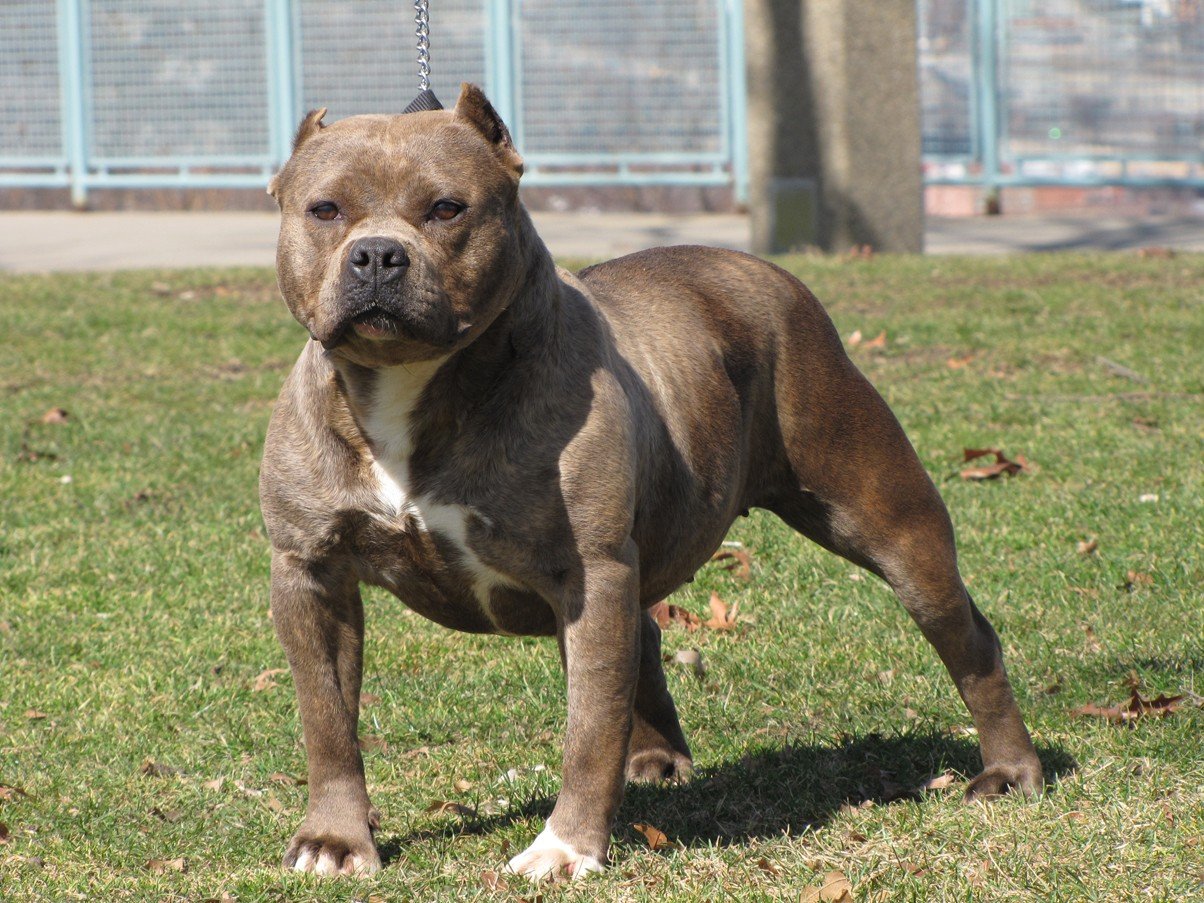Florida does not have a statewide ban on specific dog breeds. However, local jurisdictions may have their own restrictions.
Dog breed bans are a controversial topic in Florida. While the state itself doesn’t enforce a blanket ban, individual counties and cities may have their own regulations. For example, Miami-Dade County has a well-known ban on Pit Bulls. These local laws aim to address safety concerns but often spark debates about fairness and effectiveness.
Responsible pet ownership, proper training, and socialization are crucial regardless of breed. Understanding local laws helps ensure compliance and promotes safer communities. Always check local regulations before adopting or relocating with a dog. This proactive approach helps avoid legal issues and ensures a harmonious living environment.

Credit: www.wuft.org
Banned Breeds In Florida
Florida is known for its sunny beaches and vibrant culture, but it’s also known for its strict regulations on dog breeds. Certain breeds are banned in Florida to protect residents and ensure public safety. These regulations can be confusing for dog owners and enthusiasts. Understanding which breeds are banned and why can help you stay informed and compliant.
Current Legislation
Florida has specific laws that govern the ownership of certain dog breeds. The state enforces these regulations to protect the public from dangerous dogs. The legislation outlines which breeds are considered high-risk and imposes restrictions on them.
Here are some key points of the current legislation:
- Miami-Dade County: This county has a ban on Pit Bulls, including American Pit Bull Terriers, American Staffordshire Terriers, Staffordshire Bull Terriers, and any mix thereof.
- Broward County: While not a complete ban, this county has strict regulations on “dangerous dogs” which often include breeds like Rottweilers and German Shepherds.
- Statewide Regulations: Some municipalities have their own regulations, but statewide, Florida does not have a complete ban on any breed.
The table below provides a quick overview of the banned breeds in specific counties:
| County | Banned Breeds |
|---|---|
| Miami-Dade | Pit Bulls |
| Broward | Specific Dangerous Dogs (e.g., Rottweilers) |
Reasons For Bans
The primary reason for banning certain dog breeds in Florida is public safety. Authorities believe that some breeds are more likely to exhibit aggressive behavior. This belief stems from historical data and incidents involving these breeds.
Here are some reasons for the bans:
- Historical Incidents: Breeds like Pit Bulls have been involved in numerous attacks, leading to severe injuries or fatalities.
- Aggressive Traits: Some breeds are perceived to have aggressive tendencies, making them more likely to attack unprovoked.
- Public Fear: There is a general fear and stigma associated with certain breeds, leading to public demand for bans.
- Insurance Concerns: Many insurance companies refuse to cover homes with certain breeds, putting pressure on lawmakers to regulate these dogs.
While these reasons may seem justified, many dog advocates argue that behavior depends more on training than breed. They push for legislation focusing on responsible ownership rather than breed-specific bans.

Credit: thomasandpearl.com
Popular Banned Breeds
Florida has strict laws about dog breeds. Some breeds are banned because they are seen as dangerous. These laws aim to keep people safe. Let’s explore some of the most popular banned breeds in Florida.
Pit Bull Types
Pit Bulls are often banned in Florida. They are strong and sometimes aggressive. These dogs include several types:
- American Pit Bull Terrier
- American Staffordshire Terrier
- Staffordshire Bull Terrier
These dogs are known for their muscular build. They have a powerful bite. Some people use them in illegal dog fights. This gives them a bad reputation.
Many families love Pit Bulls as pets. They can be loyal and loving. But, their history makes them a target for bans. Some cities in Florida have strict rules. Owners might need special permits. They may also need to follow strict guidelines.
Here is a table with some characteristics of Pit Bull types:
| Type | Weight | Height |
|---|---|---|
| American Pit Bull Terrier | 30-85 lbs | 17-21 inches |
| American Staffordshire Terrier | 40-70 lbs | 17-19 inches |
| Staffordshire Bull Terrier | 24-38 lbs | 14-16 inches |
These breeds are banned in many places. It is important to know the laws in your area.
Rottweiler Traits
Rottweilers are another breed often banned. They are known for their size and strength. Many people use them as guard dogs. This can make them seem scary.
Rottweilers have a strong bite. They are very protective. This can be a problem if they are not trained well. Some people think they are dangerous because of this.
Here are some key traits of Rottweilers:
- Large and muscular body
- Strong bite force
- Protective nature
- Intelligent and loyal
In Florida, some places have strict rules about Rottweilers. Owners might need to register their dogs. They may need special insurance. Some areas have outright bans.
Take a look at this table for more details about Rottweilers:
| Characteristic | Detail |
|---|---|
| Weight | 80-135 lbs |
| Height | 22-27 inches |
| Lifespan | 8-10 years |
| Color | Black with tan markings |
Understanding these traits can help. It is important to train and socialize Rottweilers. This helps prevent problems.
Local Regulations
Florida has specific rules about dog breeds. Some breeds face restrictions due to safety concerns. These rules vary by location. Knowing local regulations helps you stay compliant.
County-specific Laws
Different counties in Florida have their own rules. Some counties ban specific breeds. This means the rules can change from one place to another.
For instance, Miami-Dade County has strict rules. They ban Pit Bull Terriers. This includes American Pit Bull Terriers, American Staffordshire Terriers, and Staffordshire Bull Terriers.
Other counties may have different restrictions. Here is a quick guide:
| County | Banned Breeds |
|---|---|
| Miami-Dade | Pit Bull Terriers |
| Broward | None |
| Duval | None |
Some counties focus on dangerous dogs, not specific breeds. They assess dogs based on behavior, not breed.
Understanding county-specific laws helps dog owners. It keeps pets safe and avoids fines.
City Restrictions
Florida cities can have their own rules. These rules may differ from county laws. City regulations often focus on public safety.
For example, North Miami has strict rules. They ban Pit Bulls. This includes American Pit Bull Terriers and related breeds.
Other cities may have different rules. Here is a list:
- North Miami: Pit Bulls banned
- Orlando: No breed-specific bans
- Tampa: No breed-specific bans
City rules can change often. Always check local laws before moving. This helps you avoid issues and keeps your dog safe.
Knowing city restrictions is crucial. It helps you stay informed and follow the rules.
Impact On Dog Owners
Florida has specific laws about banned dog breeds. These laws impact dog owners in many ways. Owners face challenges, including legal issues and insurance problems. Understanding these impacts helps dog owners comply with state regulations and avoid penalties.
Legal Consequences
Dog owners in Florida face serious legal consequences if they own banned breeds. Owning a banned breed can result in fines and even the removal of the dog. Local laws vary, so it’s crucial to know the rules in your area.
Some common legal consequences include:
- Fines: Owners may have to pay substantial fines.
- Confiscation: Authorities may remove the dog from the owner’s custody.
- Legal Battles: Owners might need to hire a lawyer to fight the case.
A table of common fines in different counties:
| County | Fine Amount |
|---|---|
| Miami-Dade | $500 |
| Broward | $300 |
| Hillsborough | $400 |
Repeated offenses can lead to more severe penalties. Understanding these laws helps owners avoid legal trouble and keep their pets safe.
Insurance Issues
Insurance companies have specific policies about banned dog breeds. Owning a banned breed can affect your home insurance. Some insurers might refuse to cover homes with banned breeds.
Common insurance issues include:
- Higher premiums: Owners may need to pay more for coverage.
- Policy cancellations: Insurers might cancel existing policies.
- Limited coverage: Some policies may exclude liability for incidents involving banned breeds.
A table of potential premium increases by breed:
| Breed | Premium Increase |
|---|---|
| Pit Bull | 15% |
| Rottweiler | 10% |
| Wolf Hybrid | 20% |
Discussing your breed with your insurer helps you understand your coverage. Being upfront about your dog avoids unexpected cancellations or claims denials. Responsible pet ownership includes managing these insurance issues effectively.
Public Safety Concerns
Florida has specific laws about dog breeds due to public safety concerns. Some breeds are banned because they are seen as more dangerous. Understanding these concerns helps residents feel safe and informed.
Statistical Data
Data shows that certain dog breeds cause more injuries. This data helps in making decisions about banning specific breeds.
According to the Centers for Disease Control and Prevention (CDC), certain breeds are linked to more attacks:
- Pit Bulls
- Rottweilers
- German Shepherds
These breeds have a higher number of reported bites. Below is a table showing the number of bites from these breeds in Florida:
| Breed | Reported Bites |
|---|---|
| Pit Bulls | 350 |
| Rottweilers | 120 |
| German Shepherds | 90 |
These numbers show why these breeds are a concern. Public safety is the main reason for banning these breeds.
Perceptions Of Risk
Many people think some dog breeds are more dangerous. This perception affects laws about dog breeds.
Some breeds have a bad reputation:
- Pit Bulls are seen as aggressive.
- Rottweilers are thought to be strong and dangerous.
- German Shepherds are often viewed as police dogs.
These perceptions lead to fear and concern among residents. People feel safer knowing these breeds are banned.
Many believe that banning certain breeds will reduce attacks. This belief is strong in communities with many dog bite incidents.
These perceptions shape laws and regulations. Public opinion plays a big role in banning specific dog breeds.
Alternatives To Banned Breeds
Florida has specific laws regarding dog breeds, especially those perceived as aggressive. This has led to certain breeds being banned. Finding suitable alternatives to these banned breeds can be challenging. Many people seek dogs with similar temperaments and characteristics. Here, we explore some of the best alternatives to banned breeds in Florida.
Similar Temperament Breeds
Choosing a dog with a similar temperament to a banned breed ensures you still get the companion you desire. Here are some breeds that might fit the bill:
- Boxer – Boxers are energetic, friendly, and protective. They are great family dogs.
- Golden Retriever – These dogs are known for their friendly, tolerant attitudes. They are great with kids.
- Labrador Retriever – Labradors are intelligent, gentle, and highly trainable.
- Standard Poodle – Poodles are known for their intelligence and hypoallergenic coats.
- Bulldog – Bulldogs are calm, courageous, and loyal.
For those interested in more specific traits:
| Trait | Recommended Breed |
|---|---|
| High Energy | Boxer, Labrador Retriever |
| Good with Kids | Golden Retriever, Bulldog |
| Hypoallergenic | Standard Poodle |
| Protective | Boxer, Bulldog |
Adoption Options
Adopting a dog is a great way to find a loyal companion. Many shelters and rescue organizations in Florida offer dogs of various breeds. Here are some tips for adopting a dog:
- Visit Local Shelters – Shelters have many dogs looking for a forever home.
- Check Rescue Groups – Some groups specialize in specific breeds.
- Attend Adoption Events – These events allow you to meet many dogs at once.
- Use Online Resources – Websites like Petfinder and Adopt-a-Pet list dogs available for adoption.
- Ask for Recommendations – Friends and family might know of dogs needing homes.
Adopting a dog not only gives a dog a second chance but also brings joy to your home. Here’s a quick comparison of popular adoption sources:
| Source | Benefits |
|---|---|
| Local Shelters | Wide variety of dogs, often vaccinated and spayed/neutered |
| Rescue Groups | Specialize in specific breeds, foster care insights |
| Adoption Events | Meet many dogs, on-site applications |
| Online Resources | Search by breed, age, location |
Advocacy And Change
Some dog breeds face bans in Florida, raising questions about fairness and public safety. Advocacy and change efforts aim to address these concerns. Activists work to overturn breed-specific legislation (BSL) and promote responsible pet ownership. This section highlights the tireless efforts of grassroots movements and legislative actions.
Grassroots Movements
Grassroots movements play a crucial role in challenging breed-specific bans in Florida. These groups consist of passionate dog lovers, pet owners, and animal rights activists. They work together to raise awareness about the negative impacts of BSL and advocate for change.
Here are some key activities of grassroots movements:
- Educational Campaigns: Informing the public about responsible pet ownership and the flaws of BSL.
- Petitions: Collecting signatures to show support for anti-BSL legislation.
- Community Events: Organizing events to promote positive images of banned breeds.
- Social Media Campaigns: Using platforms like Facebook and Twitter to spread their message.
Successful grassroots movements often collaborate with local shelters and veterinary organizations. These partnerships help to reach a wider audience and strengthen their advocacy efforts.
| Activity | Purpose | Outcome |
|---|---|---|
| Educational Campaigns | Inform the public about BSL | Increased awareness and support |
| Petitions | Show public support | Pressure on lawmakers |
| Community Events | Promote positive breed images | Improved public perception |
| Social Media Campaigns | Spread the message | Broader reach |
Legislative Efforts
Legislative efforts are essential in overturning breed-specific bans in Florida. Activists and organizations lobby lawmakers to introduce and support bills that oppose BSL.
Here are the main steps in the legislative process:
- Drafting Bills: Lawmakers work with activists to create legislation that addresses the issues with BSL.
- Lobbying: Activists meet with legislators to discuss the benefits of anti-BSL laws.
- Public Hearings: Activists and experts testify about the negative impacts of BSL.
- Voting: Lawmakers vote on the proposed bills.
Successful legislative efforts often require a combination of grassroots support and political advocacy. Activists must build strong relationships with lawmakers and gain public backing to push their agenda forward.
Some recent notable legislative efforts include:
- House Bill 1234: Proposed to eliminate BSL in all Florida counties.
- Senate Bill 5678: Aimed to implement stricter penalties for irresponsible pet owners instead of banning breeds.
By working together, grassroots movements and legislative efforts strive to create a fair and safe environment for all dog breeds in Florida.

Credit: www.wtsp.com
Future Of Breed-specific Laws
Many people want to know what dog breeds are banned in Florida. Breed-specific laws are changing. The future of these laws is uncertain. Some people want stricter rules. Others believe these laws are unfair. Let’s explore what could happen next with breed-specific laws.
Trends In Legislation
Recent trends show a shift in how laws treat certain dog breeds. In the past, many places banned specific breeds. Today, the focus is changing. Lawmakers are looking at a dog’s behavior, not just its breed. This shift aims to reduce unfair treatment of certain dogs.
Some states are already changing their laws. Florida may follow suit. Here are a few trends in legislation:
- Behavior-Based Laws: These laws judge dogs by their actions, not their breed.
- Mandatory Training: Some places require dog training for all breeds.
- Insurance Requirements: Owners may need to get special insurance for certain breeds.
Many cities are also updating their laws. This can be confusing for dog owners. Here is a table showing some trends in different cities:
| City | Law Type | Description |
|---|---|---|
| Miami | Breed Ban | Bans Pit Bulls |
| Orlando | Behavior-Based | Focuses on dog behavior |
| Tampa | Training Required | Mandatory training for all dogs |
Community Perspectives
Community opinions are divided on breed-specific laws. Some people feel safer with these laws. They believe certain breeds are more dangerous. Others think these laws are unfair. They argue that behavior, not breed, makes a dog dangerous.
Here are a few community perspectives:
- Safety Concerns: Some community members worry about safety. They support breed bans to protect people.
- Fair Treatment: Others believe all dogs should be treated equally. They support behavior-based laws.
- Dog Owners: Many dog owners feel breed-specific laws are unfair. They want laws that judge dogs by their actions.
Community meetings often discuss these issues. People share their experiences and opinions. Here are some common points raised:
- Personal stories of dog attacks.
- Arguments for and against breed-specific laws.
- Suggestions for alternative solutions.
Understanding community perspectives is important. It helps create fair and effective laws. Lawmakers must consider all opinions. They aim to protect people and ensure fair treatment of dogs.
Frequently Asked Questions
Which Dog Breeds Are Banned In Florida?
In Florida, Pit Bulls are banned in Miami-Dade County. Other counties may have restrictions. Always check local regulations.
Why Are Some Dog Breeds Banned In Florida?
Certain breeds are banned due to their perceived aggression. These laws aim to prevent dog attacks and enhance public safety.
Are Pit Bulls Banned In All Of Florida?
No, Pit Bulls are banned only in Miami-Dade County. Other counties have different regulations. Always verify local laws.
How Can I Find Out If My Dog Is Banned?
Check with local animal control or government websites. They provide updated lists of banned breeds and specific regulations.
Conclusion
Understanding which dog breeds are banned in Florida helps ensure compliance with local laws. Researching and staying informed can prevent legal issues and ensure your pet’s safety. Always check the latest regulations before adopting a new furry friend. This ensures a harmonious and law-abiding relationship with your pet in Florida.
